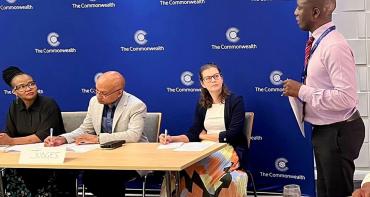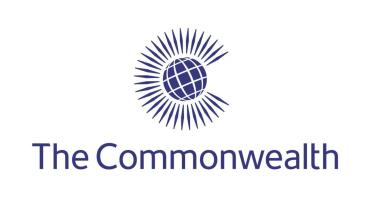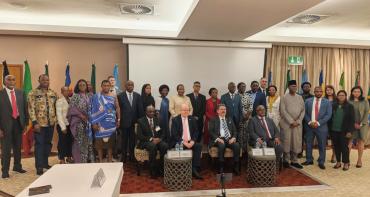Interim Statement by the Chair of the Commonwealth Observer Group to Maldives Majlis (Parliamentary) Elections, March 2014

Malé, 24 March 2014
The Commonwealth Observer Group is pleased to have observed Maldives’ second multi-party parliamentary election, held on 22 March 2014. Since our arrival on 16 March, we have met with relevant stakeholders, including the Elections Commission, political parties, independent institutions, civil society, the Maldives Police Service, Commonwealth High Commissions, international partners, and other observers.
Commonwealth teams were deployed to various areas – Haa Alifu, Haa Dhaalu, Kaafu, Malé, Thaa, Laamu, and Addu – from 20 to 24 March and observed opening, voting, counting and results aggregation processes for multiple constituencies. In making our assessment of the conduct of the elections, we met with local stakeholders including electoral officials and other observers.
We congratulate the people of Maldives in playing their part in holding a peaceful and conclusive election.
Key findings
Election day was orderly, peaceful and well administered. The competency of polling officials and the presence of observers and media enabled an efficient and transparent process. Voters appeared to be free to exercise their franchise. For ensuring the overall credibility and integrity of polling, the Elections Commission is to be commended.
Voter turnout appeared to be lower in the first half of the day, but picked up towards the close of polling. On the day, the Elections Commission encouraged voters to vote early.
The level of representation of women as candidates was very low, with only 23 women contesting seats out of a total of 302 candidates.
Strong concerns of vote buying were expressed to Observers by a wide range of domestic stakeholders.
There is a notable absence of an effective regulatory framework for campaign financing and spending by political parties and candidates.
The Group was deeply concerned that, in the lead up to the elections, action was taken by the Supreme Court on 9 March to declare the Chair and the Vice Chair of the Elections Commission dismissed from their positions for contempt of court. The removal of two members of the Elections Commission, shortly before the election, inevitably had a negative effect on the overall electoral environment and created a level of uncertainty regarding the electoral process. The Group noted that the dismissals appear to be inconsistent with the separation of powers enshrined in the Constitution.
In relation to this, the Group detected a degree of anxiety and self-censorship by some independent institutions and civil society organisations during the pre-electoral environment. This could have a detrimental effect on freedom of expression and the ability of these bodies to fulfill their mandates effectively.
The Group was disappointed that there is still a lack of clarity regarding inconsistencies between the Maldivian electoral legislative framework and the guidelines issued by the Supreme Court last year. We urge the People’s Majlis to review this issue so that all future elections are manifestly conducted in accordance with the Constitution and electoral law.
Voting and Counting Procedures
Commonwealth Observers reported orderly, transparent and well administered polling on election day, including an efficient and transparent opening and closing of polls. Polling officials appeared experienced and confident in fulfilling their roles, and were central to the credibility of the polling process. The high number of female polling officers, including chief polling officers, was significant.
Polling commenced promptly at most of the polling stations observed and the lists of registered voters were, with one observed exception, prominently displayed. Polling stations were well laid out and polling booths facilitated privacy for voters in marking their ballots. Adequate seating was provided for observers and voters waiting to be processed.
Voters appeared free to exercise their franchise, with the secrecy of the ballot provided for. Candidate representatives were present at most polling stations visited. The Police were observed maintaining an appropriate and unobtrusive presence outside polling stations. Media personnel were seen at several polling stations visited, and were able to record proceedings from an appropriate distance. All stakeholders involved appeared to know and understand their respective roles, and undertook them with great diligence.
Voter turnout was observed to be lower in the first half of election day, but appeared to pick up as the day progressed. The overall turnout appeared to be somewhat lower than for the Presidential Election in late 2013. The Elections Commission held two press conferences during polling hours, in which they encouraged voters to vote early and provided information on complaints received. Their proactive approach is to be commended.
The Group observed that the process for sorting and counting the ballots was very thorough and transparent. It noted, however, that at some polling stations accredited observers, especially those representing candidates, may have had difficulty from the distance at which they were seated in viewing each ballot as it was displayed.
At those polling stations where there were still queues of voters at 1600 hours, care was taken to allow them to cast their ballots before voting was formally closed.
The Election Campaign and Political Participation
The election campaign period was characterised by active campaigning by candidates and their parties. Candidates used traditional methods to galvanise supporters, such as holding rallies and door-to-door campaigning. They also made extensive use of social media, television, radio, newspapers and online media. A few incidents of vandalism were reported in the days ahead of the election.
Strong concerns of widespread vote buying were expressed to Observers by a range of stakeholders. Concerted and systemic efforts need to be made to address this issue prior to future elections.
Overall, the Group noted an absence of a robust regulatory framework on campaign financing and spending by political parties and candidates. While there are limits on expenditure by candidates, this is undermined by the lack of restrictions on expenditure by political parties and third parties.
The Group observed that a number of attractive new government projects and expenditures were announced during the campaign period, which could have had an influence.
There was extensive reporting of the campaign by the media. Local stakeholders expressed concern that coverage by some private media outlets was influenced by political affiliations. Reporting on local candidates was more limited, with media outlets in the main choosing to focus on speeches by party leaders and senior officials.
Disappointingly, few women contested the election as candidates. Only 7.6% of candidates – 23 out of 302 – were women.
The Electoral Framework and Election Administration
The Elections Commission is to be commended for the thoroughness of its preparations, in relation both to election day and its execution of the voter registration process in the weeks prior to the election. In accordance with the electoral framework, the Commission provided adequate time and means for voters to check their voter registration details and to re-register to vote in a different location. The Group notes that only a minute number of complaints were received in relation to the voter register on polling day.
The Maldivian legislative framework, as set out in the Constitution and the relevant electoral acts, provides adequately for the holding of credible elections. The functions of the Elections Commission, as a constitutionally mandated independent institution, are also clearly defined in Maldivian legislation.
In October 2013, the Supreme Court issued guidelines prescribing how aspects of the 2013 Presidential electoral process should be conducted. The Supreme Court later declared that the guidelines would be applicable for all future elections. While it is noted that the guideline requiring all candidates to sign the voter list did not affect the holding of this election, the continuing application of the guidelines is of concern, given that some of the guidelines are inconsistent with Maldivian electoral law and electoral best practice.
The guidelines also restrict the independence of the Elections Commission in executing its mandate. The Group is therefore of the view that the guidelines, and their consistency with Maldivian electoral law, should be reviewed by the People’s Majlis as a matter of urgency. This is consistent with the recommendations of the Commonwealth Observer Group to the 2013 Presidential elections.
Lastly, the Commonwealth Observer Group feels privileged to have been a part of this election, and we extend our thanks to the people of Maldives for the warm welcome that we have received.



